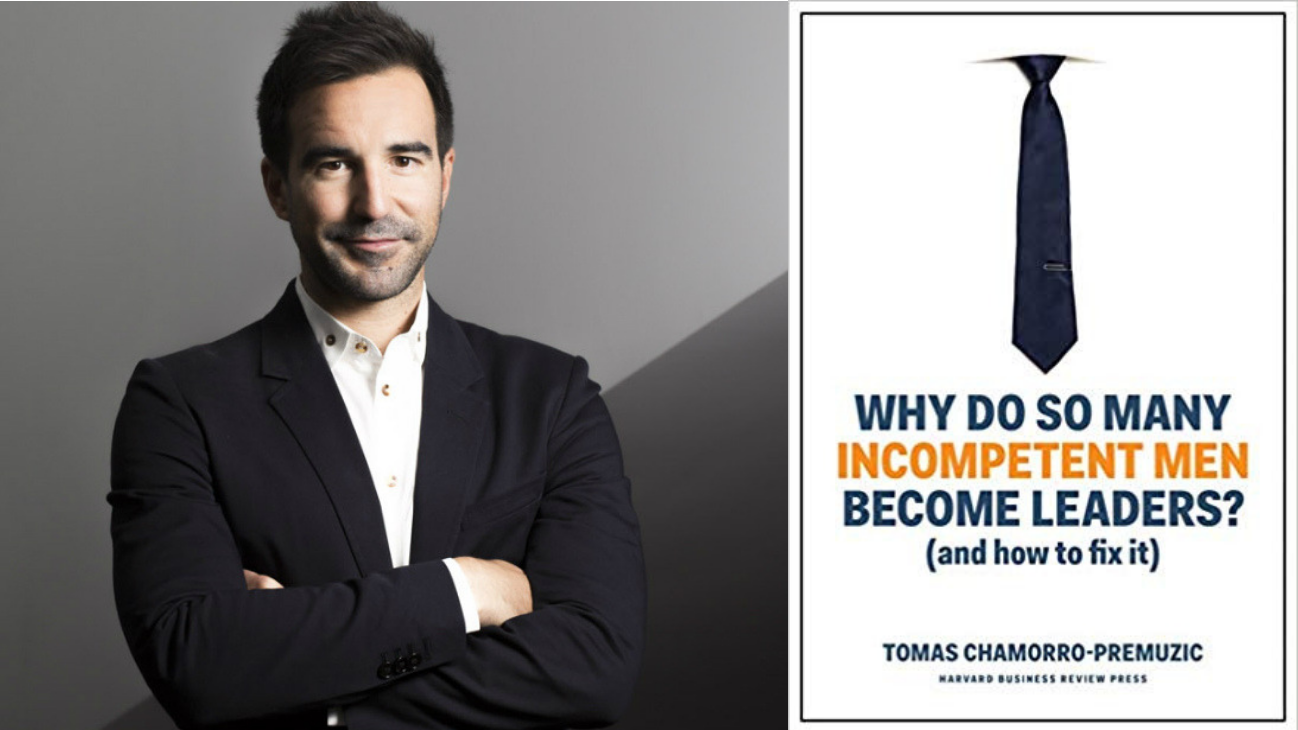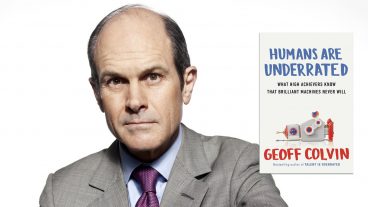Dr. Tomas Chamorro-Premuzic believes women are better leaders. He explores this subject in his new book Why Do So Many Incompetent Men Become Leaders? (And How to Fix It).
Dr. Tomas is the chief talent scientist at Manpower Group, co-founder of Deeper Signals and Metaprofiling, and a professor of business psychology at University College London and Columbia University. He is an international authority in psychological profiling, talent management, leadership development, and people analytics, and the author of nine books and more than 140 scientific papers — making him one of the most prolific social scientists of his generation.
In his timely and provocative new book, Dr. Tomas asks two powerful questions: Why is it so easy for incompetent men to become leaders? And why is it so hard for competent people — especially competent women — to advance?
Financial Times recently spoke with Dr. Tomas about his new book, diving into some of his core research on the true traits of a great leader. Below is segment from the article, read the whole piece here.
It is this mistaken insistence that confidence equates to greatness that is the reason so many ill-suited men get top jobs, he argues. “The result in both business and politics is a surplus of incompetent men in charge, and this surplus reduces opportunities for competent people — women and men — while keeping the standards of leadership depressingly low.”
…
He makes a convincing case for a more modest style of leader, focused on the team rather than advancing their own careers. Angela Merkel is the “most boring and best leader” in politics, he says. In the corporate sphere, he picks Warren Buffett who, he says, started off as a finance geek and taught himself leadership skills. David Cameron, the former British prime minister, is cited as an example of misplaced confidence in a leader — he held a referendum on Britain’s membership of the EU, sure that he would win, an assurance that, as it turned out, was misplaced.
A quiet leadership style is often overlooked as heads are turned by bravado and narcissism. “There is a cult of confidence,” says Prof Chamorro-Premuzic. In part this is because confidence is “easier to observe”. It is harder to discern whether someone is a good leader. “What we see is what we rely on, what we see is visible.”
People “overrate their intuition”, he says. Too often it turns out to be “nepotistic, self-serving choices… most organisations don’t have data to tell you if the leader is good.”
Those leaders who are celebrated for their volatility and short fuses, such as the late Apple boss Steve Jobs, might have succeeded despite, not because of, their personality defects, he argues.
One common narrative holds that women are held back by a lack of confidence, yet studies show this to be a fallacy. Perhaps it would be better to say that they are less likely to overrate themselves. The book cites one study from Columbia University which found that men overstated their maths ability by 30 per cent and women by 15 per cent.
It is also the case, he writes, that women are penalised for appearing confident: “Their mistakes are judged more harshly and remembered longer. Their behaviour is scrutinised more carefully and their colleagues are less likely to share vital information with them. When women speak, they’re more likely to be interrupted or ignored.”
“The fundamental role of self-confidence is not to be as high as possible,” he adds, “but to be in sync with ability.”
…
The book’s central message, though, is not to make a case for preferential treatment for women, but rather to “elevate the standards of leadership”. We should be making it harder for terrible men to get to the top, rather than focusing solely on removing the hurdles for women.
He makes the argument against setting quotas for women in senior positions, which, Prof Chamorro-Premuzic says, can look like special pleading. Rather, he says: “We should minimise biases when it comes to evaluating leaders, rely less and less on human valuations and use performance data.”
Raising the leadership game will boost the number of women in such positions, but it will also highlight talented but modest men who are typically overlooked. “There are many competent men who are being disregarded for leadership roles,” he says.
Interested in learning more about Dr. Tomas Chamorro-Premuzic and what he can bring to your next event? Email us at [email protected].




